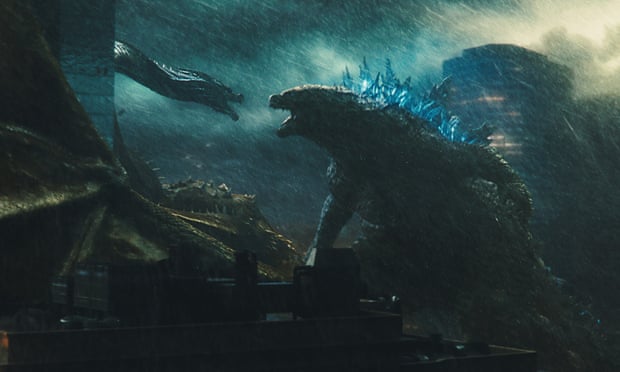The tussle for power between giant monsters and humans is a timeless theme, tackled by the likes of Transformers, Jurassic Park and Pacific Rim franchises with varying degrees of success. The problem with Hollywood’s latest take, Michael Dougherty’s reimagining of the Japanese studio Toho’s famous kaiju series, is not its predictability, but its utter gracelessness.
The plot picks up after 2014’s Godzilla. A sonar device developed by Vera Farmiga’s Emma to control the monsters has been hijacked by an eco-terrorist; her ex-husband (Kyle Chandler) is drafted in to track it down.
Their teenage daughter (Millie Bobby Brown from Stranger Things) is a distraction, caught in the middle of her divorced parents. Battle scenes occur in weather conditions so extreme that the action is rendered indecipherable (as are the beloved giant creatures, including the three-headed serpent King Ghidorah, bird-like Rodan and winged Mothra).
The ugly visual effects are outdone only by the sound design, which is relentlessly loud and thunderingly tedious. Verbal exchanges between the humans are devoid of wit and barely functional in communicating the story.
… and laying the foundations for a sustainable future. Guardian journalism has now been supported by more than one million readers across the world – meaning we’ve been able to keep all our reporting open to everyone, and our editorial independence is protected. But we need to keep growing the number of readers who are investing in our future – by 2022, we aim to have two million supporters around the world.
The Guardian will engage with the most critical issues of our time – from the escalating climate catastrophe to widespread inequality to the influence of big tech on our lives. At a time when factual information is a necessity, we believe that each of us, around the world, deserves access to accurate reporting with integrity at its heart.
Our editorial independence means we set our own agenda and voice our own opinions. Guardian journalism is free from commercial and political bias and not influenced by billionaire owners or shareholders. This means we can investigate with courage and report with honesty – giving a voice to those less heard, exploring where others turn away, and rigorously challenge those in power.

